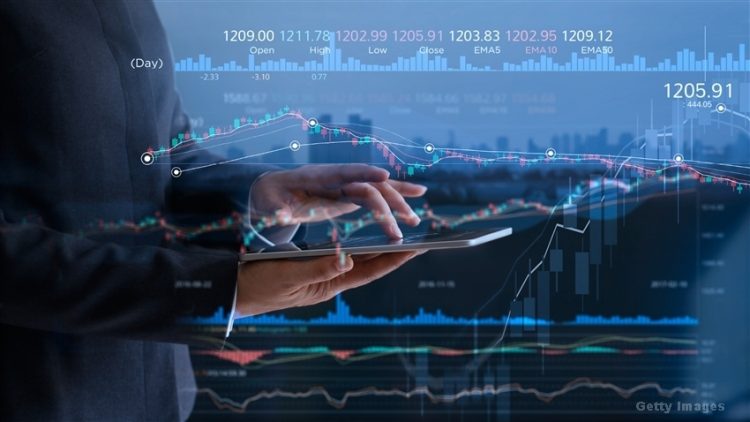Introduction
The stock market has been experiencing strong growth in recent years, with indices such as the S&P 500, NASDAQ, and Dow Jones regularly hitting record highs. This upward momentum has been driven by a variety of factors, including low interest rates, stimulus measures, corporate earnings growth, and advances in technology. However, as valuations continue to climb, many investors and analysts are raising concerns about whether the stock market is becoming overvalued and whether a correction is on the horizon.
A stock market correction is typically defined as a decline of 10% or more from its most recent high, often triggered by changes in economic conditions, shifts in investor sentiment, or external factors such as geopolitical events or natural disasters. With valuations soaring, some believe that the market is poised for such a correction, while others argue that the current prices are justified by strong corporate earnings, technological advancements, and the overall economic recovery.
This article will explore whether the current high valuation levels in the stock market are a warning sign of an impending correction or simply a reflection of a fundamentally strong economy. We will also examine the key factors influencing market valuations and consider the potential risks and opportunities for investors moving forward.
1. What Do We Mean by “High Valuations”?
a. Price-to-Earnings (P/E) Ratio and Historical Comparisons
One of the most widely used metrics to evaluate stock market valuations is the Price-to-Earnings (P/E) ratio, which compares a company’s stock price to its earnings per share (EPS). The higher the P/E ratio, the more investors are willing to pay for each dollar of earnings, which can be an indicator of overvaluation if the ratio is significantly higher than historical averages.
For example, the S&P 500’s P/E ratio has been above its historical average of 15-16 in recent years, consistently staying above 20 and reaching peaks of over 30. In fact, as of mid-2023, the P/E ratio of the S&P 500 stood at about 26, which is well above the long-term historical average.
A high P/E ratio can indicate that investors have high expectations for future earnings growth, but it can also signal that the market is overpriced. When a stock or index is trading at a high P/E, the market may be anticipating high growth, and any failure to meet these expectations could lead to significant corrections.
b. Other Valuation Indicators: Shiller CAPE Ratio
Another commonly referenced indicator is the Shiller Cyclically Adjusted Price-to-Earnings (CAPE) ratio, which smooths out earnings over a 10-year period to account for economic cycles. This provides a more reliable view of long-term valuation trends by mitigating the effects of short-term fluctuations in earnings.
The CAPE ratio for the S&P 500 has been at historically high levels in recent years. As of 2023, the CAPE ratio exceeded 30, well above the long-term average of around 16. This suggests that, by historical standards, stocks are relatively expensive. While the CAPE ratio is a valuable tool for assessing the overall market’s valuation, it is important to consider other factors, such as the current economic environment and the role of low interest rates, which may justify higher valuations.
c. Sector-Specific Valuations
While overall market valuations may seem high, it is also important to consider sector-specific valuations. For instance, technology stocks have been a driving force behind the recent market rally, and many of these companies—such as Apple, Microsoft, Amazon, and Nvidia—have experienced rapid earnings growth. As a result, these stocks have higher P/E ratios compared to more traditional sectors like energy or utilities. While the tech sector continues to grow and innovate, its high valuation relative to other sectors may be seen as a potential risk for a market correction, especially if growth expectations do not materialize.
2. Factors That Could Trigger a Market Correction
a. Rising Interest Rates and Inflation Concerns
One of the key factors that could trigger a market correction is the potential for higher interest rates. Central banks, such as the Federal Reserve in the United States, have kept interest rates at historically low levels in response to the COVID-19 pandemic, in an effort to stimulate economic growth. However, with inflation running at elevated levels, there is growing pressure for central banks to raise interest rates to curb inflation and prevent an overheating economy.
Higher interest rates can have a direct impact on stock valuations, as they increase the cost of borrowing for businesses and consumers. As interest rates rise, the discount rate used to calculate the present value of future cash flows increases, which can lead to lower valuations for stocks. Additionally, higher rates make bonds and other fixed-income investments more attractive, which could divert capital away from the stock market.
The possibility of rising interest rates is a significant concern for investors, as it could lead to a sharp revaluation of equities. Historically, when interest rates rise after a period of sustained low rates, it often signals the beginning of a market correction, especially if the adjustment is seen as sudden or aggressive.
b. Earnings Disappointments and Slower Growth
Another risk that could lead to a market correction is the possibility of earnings disappointments. While corporate earnings have been strong in recent quarters, driven by a post-pandemic recovery, there are concerns that growth could slow as businesses face rising costs, supply chain disruptions, and geopolitical uncertainty. If earnings growth does not meet the high expectations embedded in current stock prices, it could trigger a correction.
Additionally, some analysts are concerned about the impact of slowing global economic growth, particularly in key markets like China and Europe. A global slowdown in economic activity could lead to lower consumer spending, weaker corporate profits, and overall market weakness. If earnings growth starts to decelerate, the premium currently placed on stocks could evaporate, resulting in a correction.
c. Geopolitical Tensions and Global Risks
Geopolitical risks, such as the ongoing Russia-Ukraine war, tensions in Taiwan, and trade disputes between the U.S. and China, can create significant uncertainty in the global markets. These risks can lead to market volatility, as investors react to potential disruptions in supply chains, commodity prices, and global trade.
The recent surge in energy prices and commodity costs due to geopolitical instability has added to inflationary pressures, further complicating the economic outlook. If these risks escalate, the market could experience a sharp downturn as investors flee riskier assets.
d. Market Sentiment and Behavioral Factors
Stock markets are often influenced by investor sentiment, which can be a key driver of market fluctuations. When valuations become excessively high, driven by euphoria, speculation, or herd behavior, there is a risk of a sudden correction when sentiment shifts. For example, during periods of extreme optimism, investors may ignore the risks associated with high valuations, only to be caught off guard when market conditions change and prices fall sharply.
The behavior of retail investors—particularly in the context of meme stocks and social media-driven trading—has added another layer of complexity to market dynamics. If retail investors suddenly shift their focus from high-growth stocks to other asset classes or lose confidence in the market, it could trigger a sharp decline in stock prices.

3. Is the Market Overvalued, or Is It Justified by Fundamentals?
a. Strong Earnings Growth and Economic Recovery
One of the main arguments for the current high stock valuations is the strong performance of corporate earnings. S&P 500 companies have reported robust profits over the past few years, supported by the economic recovery from the pandemic, strong consumer demand, and technological innovation. Even as the economy faces challenges like inflation and labor shortages, many companies have shown resilience by increasing prices and improving operational efficiencies.
The underlying economic fundamentals—such as low unemployment, solid GDP growth, and strong consumer spending—have helped support the market rally. As long as the economic recovery continues, some argue that high valuations are justified, as businesses remain profitable and continue to generate strong cash flows.
b. Technological Innovation and Market Leadership
Another justification for high valuations is the rapid technological innovation driving growth in key sectors like technology, healthcare, and renewable energy. Companies at the forefront of these sectors—especially in the cloud computing, artificial intelligence (AI), and electric vehicle (EV) industries—are expected to continue experiencing significant growth, which could justify the premium placed on their stocks.
Additionally, market leadership plays a role in maintaining high valuations. Companies like Apple, Microsoft, and Tesla are often seen as industry leaders with a strong competitive advantage, allowing them to command higher multiples compared to their peers.
c. The Role of Central Banks and Low Interest Rates
The actions of central banks have also played a significant role in driving high stock valuations. With interest rates remaining low and central banks maintaining accommodative monetary policies, investors have been more willing to invest in stocks, seeking higher returns than those offered by bonds and other fixed-income assets. As long as interest rates remain low, the demand for stocks could continue, supporting higher valuations.
However, if central banks begin to tighten monetary policy—raising rates and reducing stimulus—this could lead to a correction, as higher borrowing costs make equities less attractive.
4. Conclusion: Will the Market Experience a Correction?
The question of whether the current high stock valuations signal an impending correction is complex and depends on a variety of factors. While market valuations are certainly elevated by historical standards, the underlying economic fundamentals, strong corporate earnings, and ongoing technological innovation provide a justification for these high valuations.
However, there are clear risks that could lead to a correction. Rising interest rates, geopolitical tensions, slower earnings growth, and shifts in investor sentiment could trigger a revaluation of stocks. Ultimately, investors must weigh the potential for continued growth against the risk of a correction and adjust their portfolios accordingly.
For long-term investors, a market correction may present opportunities to buy high-quality stocks at a discount. However, short-term traders and those with a more cautious outlook may want to prepare for the possibility of volatility and adjust their positions to manage risk.
In conclusion, while high valuations alone do not guarantee a correction, the combination of elevated prices and underlying risks suggests that the market could experience increased volatility in the near future. Staying informed and maintaining a diversified portfolio will be key strategies for investors navigating these uncertain times.













































